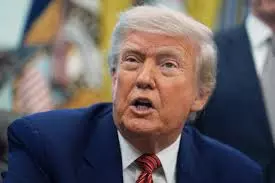US-Vietnam Deal, Proposed Tariffs On Russian Oil Buyers
The industry which was waiting for the US-India trade deal is now apprehensive about its prospects. India has been expecting the US to exempt it from reciprocal tariffs under the deal and the Vietnam deal shows how the US can retain duties despite a deal.

Chennai: The announcement on the US-Vietnam trade deal and plans to impose tariffs on Russian oil buyers have left the Indian industry worried about the US-India BTA. They want the government to wait and watch before finalising the deal.
As per the announcement made by the US President Donald Trump, Vietnamese goods entering the country will face a 20 per cent import tariff against 46 per cent reciprocal tariffs announced earlier. The new tariff is triple the rates of 2-10 per cent offered under the trade deal signed by the US with Vietnam in 2000. On the other hand, the new deal will allow the US to export its goods to Vietnam at zero per cent tariff.
The US will also impose a 40 per cent tariff on goods routed through Vietnam but originating elsewhere. According to GTRI, transshipment tariffs are “legally flawed" and “WTO-inconsistent”. “If a product is made in China, it remains Chinese regardless of the shipping route and is already subject to the appropriate US tariff. Imposing a separate 40 per cent duty based on routing alone is both arbitrary and WTO-inconsistent,” it said.
The industry which was waiting for the US-India trade deal is now apprehensive about its prospects. India has been expecting the US to exempt it from reciprocal tariffs under the deal and the Vietnam deal shows how the US can retain duties despite a deal.
“We should wait and watch and see what our competitors are getting from their deals before finalizing ours. If China gets zero per cent duty and we 10 per cent, the deal serves no purpose,” said Pankaj Chaddha, chairman, EEPC.
The deal also fails to clarify how the US will treat goods that are partially manufactured in China but undergo final assembly or value addition in Vietnam—a common practice in global manufacturing networks.
Meanwhile, US Senator Lindsey Graham said that he wanted the US to impose 500 per cent tariffs on countries like India and China which buy oil from Russia. Such inconsistent statements from the US will make a deal meaningless, finds the industry.
“Indian negotiators must closely study the Vietnam deal’s shortcomings—especially the reversal of earlier concessions, the imposition of blanket tariffs, and the vague treatment of Rules of Origin. For India, ensuring tariff parity, enforceable commitments, and adequate protections for key sectors will be critical to avoid a similarly one-sided outcome,” said GTRI.

